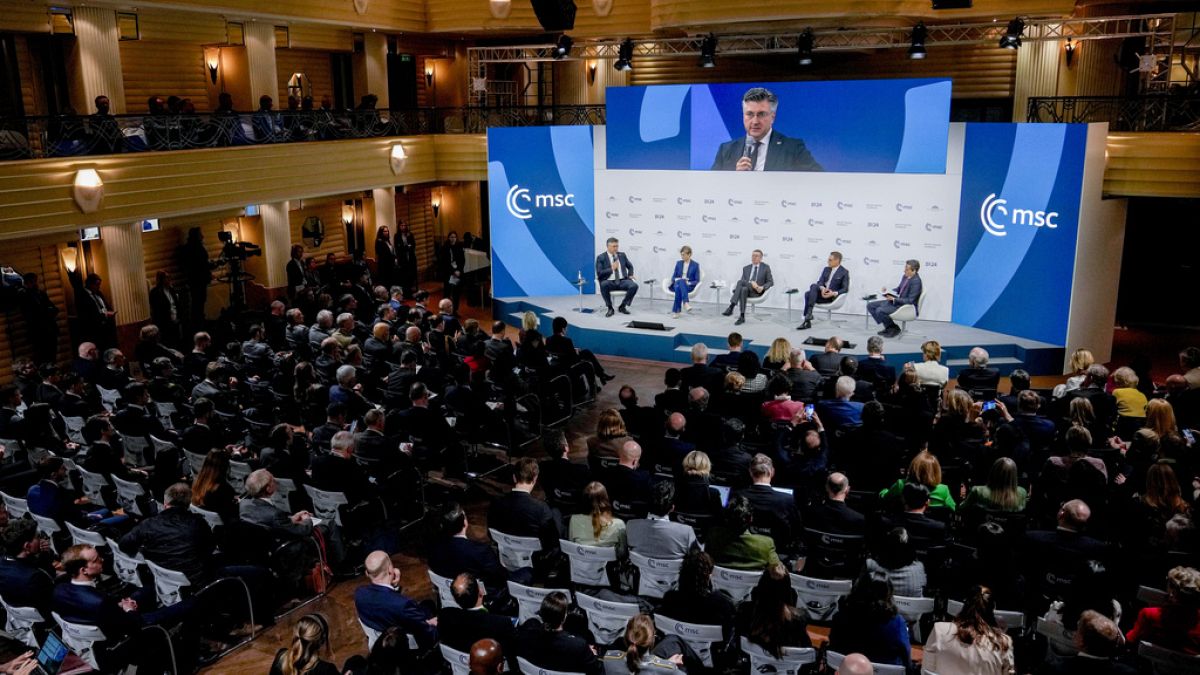Europe
Stunned Europeans make plans after US announcements on Ukraine

European Leaders Scramble for Unity Amidst Shifting Geopolitical Landscape
The final day of the Munich Security Conference saw European leaders scrambling to consolidate their strategy as the European Union seeks to transition from rhetoric to actionable measures. This urgency was heightened by Washington’s renewed push to halt the conflict in Ukraine. The conference, a premier platform for global security discussions, became a focal point for addressing the evolving dynamics in transatlantic relations. European leaders, however, were caught off guard by recent statements from the Trump administration regarding the war in Ukraine and European defense. These developments have introduced a new layer of complexity, prompting Europe to reassess its role and influence in shaping the conflict’s outcome.
A New Challenge: Europe’s Response to Trump’s Diplomatic Overtures
President Donald Trump’s recent communication with Russian President Vladimir Putin has added fuel to the fire, raising concerns among European leaders. Following a phone call with Putin, Trump suggested that a meeting with the Russian leader to negotiate a peace deal for Ukraine was imminent. While Trump reassured Ukrainian President Volodymyr Zelenskyy of his inclusion in any such negotiations, U.S. officials made it clear that European nations would not be part of these talks. This exclusion has sparked anxiety and uncertainty within the European community, which fears that Ukrainian sovereignty and European security could be compromised. The development highlights the challenges Europe faces in maintaining its influence in a conflict where it is both directly and indirectly involved.
Europe’s Fears and the Push for an Emergency Summit
The exclusion of European nations from the proposed peace talks has sent shockwaves across the continent. European leaders are worried that such a move could undermine Ukraine’s sovereignty and weaken European security structures. These concerns have prompted a swift response, with plans for an informal emergency summit on Ukraine to be held in Paris. The summit, bringing together European leaders, aims to address the growing apprehensions and forge a unified strategy to counterbalance the potential marginalization of European interests. Christoph Heusgen, Chairman of the Munich Security Conference, underscored Europe’s critical role, stating, "The message from Munich is clear. Europe is not nice to have. Europe is a must have."
The U.S. and Russia’s Diplomatic Maneuvers
The United States has announced plans to engage with Russian officials in Saudi Arabia in the coming days, aiming to kickstart talks to end Moscow’s aggression in Ukraine. However, Ukrainian President Volodymyr Zelenskyy has revealed that his country was not invited to these discussions. Zelenskyy has been adamant that Ukraine will not engage in direct negotiations with Russia without first consulting its strategic partners. This stance reflects Ukraine’s endeavor to maintain its sovereignty and ensure that its interests are represented in any peace negotiations. The situation underscores the intricate diplomacy at play, with multiple actors vying to shape the conflict’s resolution.
Zelenskyy’s Firm Stance and Europe’s Dilemma
Zelenskyy’s unwavering position highlights the delicate balance of power in the region. While the U.S. seeks to broker a peace deal, Europe finds itself in a precarious position, torn between supporting Ukraine and maintaining its alliance with the U.S. The exclusion of European leaders from the proposed talks has exacerbated the dilemma, raising questions about Europe’s strategic autonomy and its ability to influence global security matters. As the situation unfolds, Europe must navigate this complex landscape to ensure that its voice is heard and its interests are protected.
The Broader Implications for Global Security and European Unity
The developments at the Munich Security Conference have far-reaching implications for global security and European unity. The three-day event served as a hub for high-stakes diplomacy, with representatives from diverse regions, including Syria, Saudi Arabia, Japan, and South Korea, in attendance. The conference underscored the interconnected nature of global security challenges, emphasizing the need for collaboration and solidarity. However, the unfolding events also exposed the vulnerabilities within the transatlantic alliance, raising critical questions about the future of European security and the EU’s ability to act cohesively in the face of external pressures. As Europe moves forward, the message from Munich remains clear: Europe’s role in global security is not just desirable but essential.


















